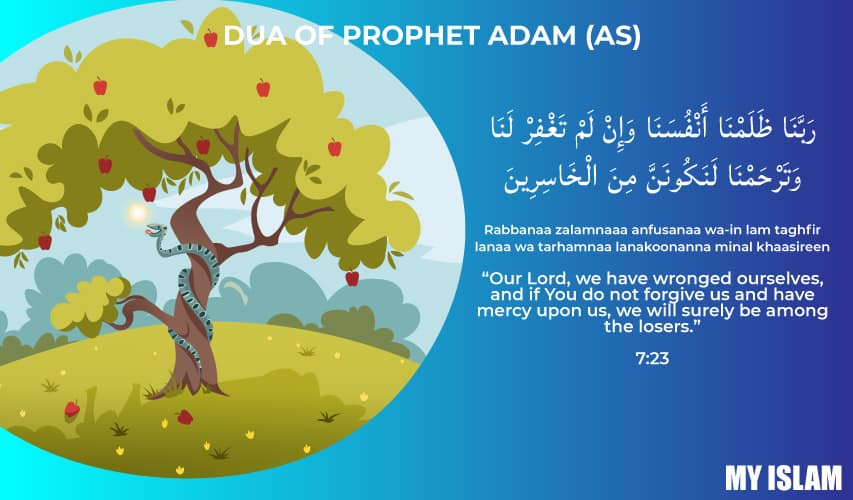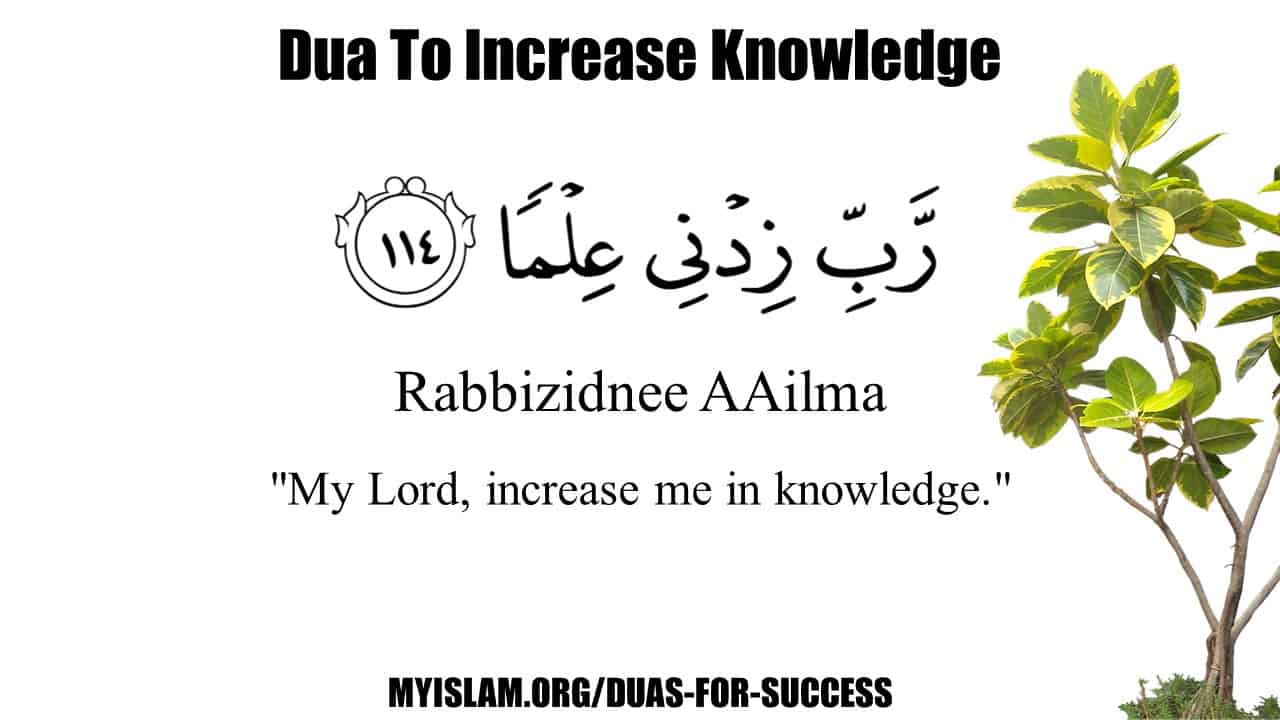
If you were not to commit sins, Allah would have swept you out of existence and would have replaced you by another people who have committed sin, and then asked forgiveness from Allah, and He would have granted them pardon.
— Sahih Muslim 2748b
Du’a For Mercy When We Have Wronged
رَبَّنَا ظَلَمْنَا أَنْفُسَنَا وَإِنْ لَمْ تَغْفِرْ لَنَا وَتَرْحَمْنَا لَنَكُونَنَّ مِنَ الْخَاسِرِينَ
Rabbanaa zalamnaaa anfusanaa wa-in lam taghfir lanaa wa tarhamnaa lanakoonanna minal khaasireen
“Our Lord, we have wronged ourselves, and if You do not forgive us and have mercy upon us, we will surely be among the losers.”
Surah Al A’raf verse 23
Short take-aways from the story of Adam (as):
- Guilt is a very useful emotion when you listen to it. If you listen to your guilt it can actually guide you, it’s when you ignore or suppress the emotion that causes internal problems.
- It’s never too late for redemption, at any moment your capable of change. Don’t ever feel hopeless thinking that it’s too late for you.
- People will always live up to who they believe they are. Who do you believe you are? How would you describe yourself? Is this view constructive or destructive? No one else is in control of how you define yourself.
Longer story:
The story of Adam (as) marks the beginning of all human life and encompasses the first events of mankind. Allah created Adam (as) and honored his creation by commanding all His angels prostrate to out of respect, “And [mention] when We said to the angels, “Prostrate before Adam”; so they prostrated, except for Iblees. He refused and was arrogant and became of the disbelievers.” (2:34) In Surah Al-A’raf, it was asked of Iblees, “’What prevented you from prostrating when I commanded you?’ [Iblees] said, ‘I am better than him. You created me from fire and created him from clay.’” (7:12)
Iblees was envious of Allah’s newest creation and felt disrespected, out of spite he vowed to cause corruption, “I will surely take from among Your servants a specific portion. And I will mislead them, and I will arouse in them [sinful] desires, and I will command them so they will slit the ears of cattle, and I will command them so they will change the creation of Allah.” (4:118-119) Allah mentions in the following verse, “Iblees promises them and arouses desire in them. But Iblees does not promise them except delusion.” (4:120) It is Iblees’s mission to create desires in us, give us false hope. He wants to tempt us into believing falsehood, but Allah warns us that this only but a deception.
Now, at the time, Adam (as) was in Jannah (paradise) and was given only one instruction from Allah (swt) which is mentioned in Surah Baqarah verse 35, “O Adam, dwell, you and your wife, in Paradise and eat therefrom in [ease and] abundance from wherever you will. But do not approach this tree, lest you be among the wrongdoers.” Not only was Adam (as) forbidden from eating the Apple, Allah warned him to stay away from the tree.
This is like the warning given to committing Zina (adultery), Allah forbids us from even coming close to approaching adultery. The wisdom behind this is He knows one thing can lead to another and before you know it, you’re heading down a one-way street with no exit. We should give a whole lot of things a wide berth, meaning you and me should keep things which we are doubtful of at a respectable distance.
There’s a lot that could be said about the science of habits. It is far easier to abstain than to kick a bad habit. One principle which should help you in forming habits that last is to develop an identity or a story of how you view yourself. See, if you’ve never smoked cigarettes, it’s easy for you to say no when one is offered because you simply don’t identify as being a smoker. Similarly, if you’re trying to quit and you say, “well, I’ve been a smoker my whole life” then I know your days are numbered and you’ll soon be back smoking a pack.
People will always live up to who they believe they are. For the person who has never smoked, the amount of will power exerted in saying no is minimal and seems effortless. Similarly, if you want to lose weight instead of focusing on the goal to lose X pounds (a mistake many people make), begin with the premise that you’re the kind of person who likes to be active every day and prove it to yourself by taking small actions. Eat an apple, drink some water, go for a 5-minute walk around the block. Small actions are a signal that communicates to yourself that you are a health-conscious person. This in turn helps form an identity that begins the positive loop and enforces the habit to exercise daily.
For reasons best known to Allah subhanahu wa ta’ala, Adam (as) fell victim to Iblees’s games and disobeyed Allah’s command, “and Adam and his wife ate of it, and their private parts became apparent to them, and they began to fasten over themselves from the leaves of Paradise. And Adam disobeyed his Lord and erred” (20:120). This could be part of Allah’s plan to show us how we should behave when we falter in our actions and fail to follow our code of conduct. What Adam (as) did next was honorable, he took immediate ownership of his actions and regretted his decision. This sounds simple but how many of us can say we do the same? It is natural for us to deflect blame onto others to protect our pride and ego. It is far easier to give up responsibility then to take it, so we point fingers and blame the circumstance, the people, or the environment. We create a whole list of reasons and include everything imaginable but forget the possibility of putting ourselves on that list.
Being able to admit your faults and to harbor guilt is a beautiful sign of our belief and dedication to Allah subhanahu wa ta’ala. It is a sign of your iman (faith). It is no secret we will make many mistakes but as long we don’t lose faith in Allah and continue to repent to him then we have a chance to receive His Mercy and to improve.
Some people feel a sense of hopelessness thinking that it’s too late for them, but it is never too late to seek the forgiveness of your Lord, “Allah wants to accept your repentance…” (4:27). It is the one who sins and no longer fears Allah that should be most worried. This kind of person has developed a deep-rooted belief that he or she will not have to answer to anyone. It is a funny paradox, if you’re not worried, you need to worry. And if you are worried, you don’t need to worry. Adam (as) was tested, he took ownership of his action and sought the immediate forgiveness of his maker. Following this methodology is a true sign of a Mu’min (a believer).



